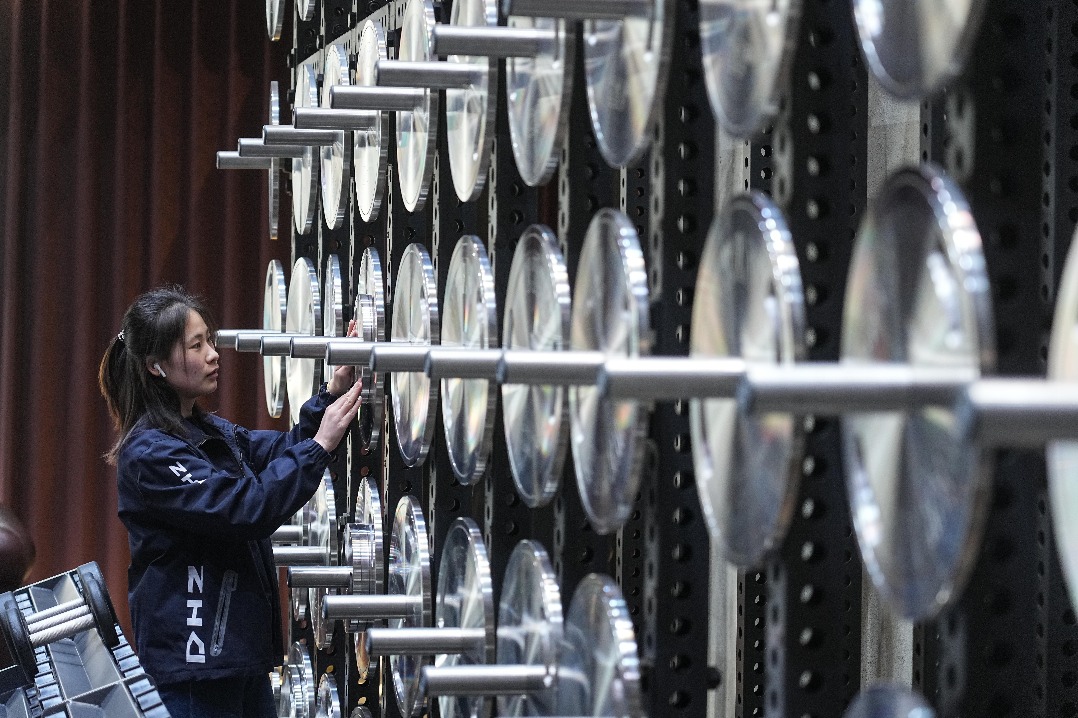Improved Sino-US biz ties welcomed
Experts say closer engagement helps ensure long-term stability, growth

Closer engagement between Chinese and US business communities is likely to mitigate the risk of economic decoupling and reinforce the enduring appeal of the Chinese market to global investors, said government officials and business leaders on Thursday.
They made the remarks following the latest round of China-US economic and trade talks held in Stockholm earlier this week. The two sides engaged in candid, in-depth and constructive discussions on key issues of mutual concern.
Building on the consensus reached at the meeting, both sides will continue pushing for a continued extension by 90 days of the pause on 24 percent tariffs from the United States, as well as countermeasures by China, said the Ministry of Commerce.
Speaking at a news conference in Beijing, Wang Linjie, a spokeswoman for the China Council for the Promotion of International Trade, said that at the invitation of the CCPIT, a delegation of the US-China Business Council board of directors visited China from Monday to Wednesday.
The delegation included senior executives from leading US enterprises such as Apple, Goldman Sachs and Thermo Fisher Scientific.
During their visit to Beijing, the delegation held meetings with several Chinese government officials and reaffirmed their commitment to maintaining a strong presence in China and deepening their local engagement, vowing to promote the development of China-US economic and trade relations through tangible actions, said Wang.
"Over the years, the business communities of both countries have formed a mutually beneficial community of shared interests and have been strong advocates for the stable, healthy and sustainable development of China-US business ties," she added.
Echoing these sentiments, Wang Wen, dean of Renmin University of China's Chongyang Institute for Financial Studies, said that the talks in Sweden sent a clear signal that the world's two largest economies remain committed to dialogue, managing differences and promoting global stability.
According to a report released by the US-China Business Council in mid-July, about 82 percent of surveyed companies reported profitable operations in China in 2024, an improvement compared to the past two years.
Also on Thursday, He Yadong, a spokesman for the Ministry of Commerce, said that in the wake of the latest round of economic and trade talks between China and the US in Stockholm, China looks forward to working with the US to fully leverage the role of the bilateral economic and trade consultation mechanism, and strive for more win-win outcomes.
He also said the ministry will collaborate with the European Union to ensure the effective implementation of follow-up measures stemming from the 25th China-EU Summit held in Beijing last week.
Stressing that the foundation of Sino-EU economic and trade ties lies in complementarity and mutual benefit, the spokesman urged the EU to keep its market open and address the concerns of Chinese businesses.
He also called on the bloc to exercise caution in deploying restrictive trade and economic measures to ensure a fair, transparent and nondiscriminatory business environment for Chinese companies operating in the EU market.
China welcomes more European companies to invest, deepen their footprint and seize the vast opportunities presented by the country's growth, he added.
Hu Xiaofeng, president of Ningbo Jidian Health Technology Co Ltd, a candy maker in Ningbo, Zhejiang province, said his company hopes for greater stability and predictability in China-US and China-EU trade relations to ensure long-term business stability and growth.
"Stable economic and trade ties not only help reduce trade barriers and boost cooperation, but also facilitate smoother market access and improve the well-being of the people," he said.
The company, with major export markets including the US and Europe, exported 419 metric tons of candy with a total value of 33.67 million yuan ($4.68 million) in the first half, representing year-on-year increases of 51.36 percent and 21.06 percent, respectively, said Ningbo Customs.
zhongnan@chinadaily.com.cn




































